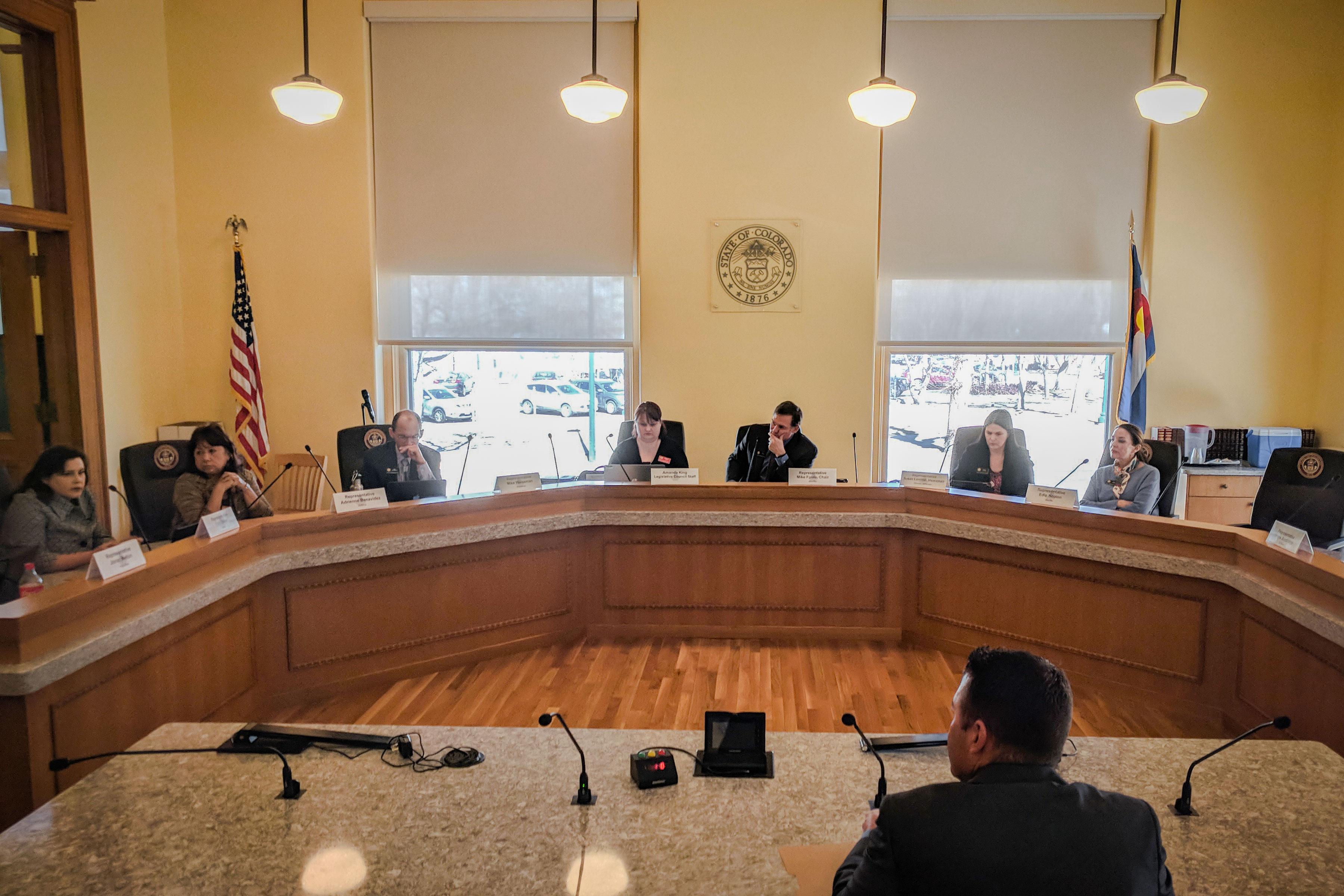

Colorado lawmakers almost never want their bill brought to the attention of a certain committee.
Its formal name is the State, Veteran and Military Affairs Committee. Its formal role is to hear bills on elections and military issues. But to Capitol insiders, each panel in the House or Senate goes by another name: The “kill committee.”
“I wouldn’t even say it’s really whispered about,” said Democratic State Sen. Andy Kerr. “People talk about it pretty openly within the Capitol.”
Under the Colorado Constitution, every bill must come up for a public hearing and receive an up-or-down vote. The rule, known as the GAVEL Amendment, means legislative leaders have limited power to block bills. So to influence outcomes, the speaker of the house or the senate president carefully assign measures to different committees.
Most committee assignments match the topic of a bill. Highway funding bills go to the Transportation Committee. Criminal justice bills head to the Judiciary Committee. So, when a bill that has nothing to do with veterans or elections heads to State Affairs, lawmakers know the fix is in.
Their bill has been dispatched to a legislative slaughterhouse.
“There are certain bills that are philosophically untenable for us,” explained Republican Senate President Kevin Grantham. “And there has to be a place for that to go without turning everything into a circus.”
To put it another way, Grantham often sends bills he doesn’t like to the committee. He trusts its members to derail legislation before it reaches the floor of the GOP-controlled Senate. So far this session, 80 percent of Democratic bills have failed in the committee. The same game plays out in the Democratic-controlled House, where 86 percent of Republican bills have been put out to pasture so far this year.
Sen. Kerr has seen many of his bills die in the committee over the last few years. Most recently, a measure he sponsored to asks voters to fund full-day kindergarten in Colorado was defeated. Kerr expected as much. As a Democrat, he knows some of his bills won’t be palatable to the Republican Senate majority.
It’s also important to note who sits on each State Affairs Committee, Kerr said. In both chambers, committee members tend to come from safe districts. Most won their elections by 20 or 30 percent. One ran uncontested.
“These are districts where your voting record really only matters to people in your own party,” he said.
In other words, the appointed executioners don’t have to worry about reelection. That means lawmakers in more vulnerable districts don’t face as many tough votes.
Mark Ferrandino, a Democrat who served as House Speaker from 2012 to 2014, said that’s how he and his opponents used the “kill committee” during his tenure.
“State Affairs was known as the committee where you had safer members from both parties who would be assigned to it and be able to take the tough votes on difficult political situations,” he said.
Ferrandino remembers one example: In 2014, Republicans pushed for Jessica’s Law, which would have set strict mandatory sentences for sex offenders. They claimed it would deter crimes against kids, but Ferrandino suspected the legislation was meant to smear Democrats.
“It wasn’t really about policy,” he said. “It was about politics.”
Ferrandino’s suspicion was that Democrats would have faced negative election mailers for voting down the bill. He sent it to State Affairs where it died thanks to votes from Democrats in safe electoral districts.
Some say that practice discourages public participation. Republican House Minority Leader Patrick Neville has seen many bills from his caucus die in the State Affairs Committee.
“You see a lot of people that would be willing to come in and testify, but once they see it goes to State Affairs, they realize it might not be worth coming down to the Capitol to say something,” he said.
Terrance Carroll, another former Democratic Speaker of the House, knows “kill committees” aren’t pretty, especially when they safeguard lawmakers afraid of displaying their views. It’s one more reason why he said people compare lawmaking to sausage making.
“You just don’t want to think that government works that way,” he said. “But it does.”
As Carroll puts it, lawmakers want to make good policy but also have to play politics. And kill committees are just good defense.









